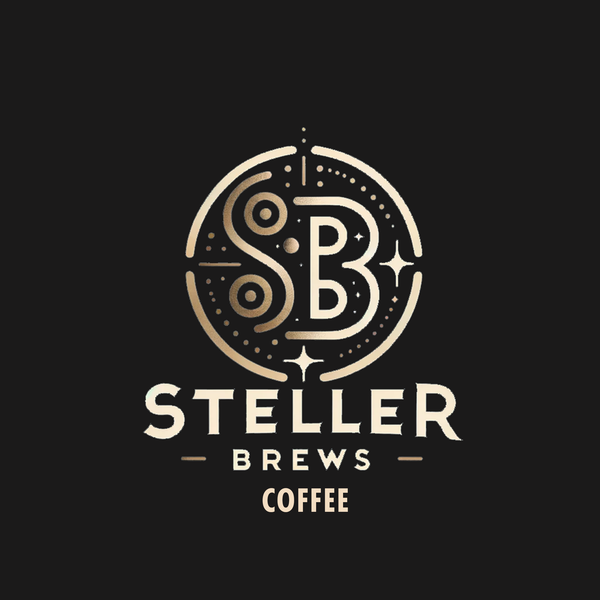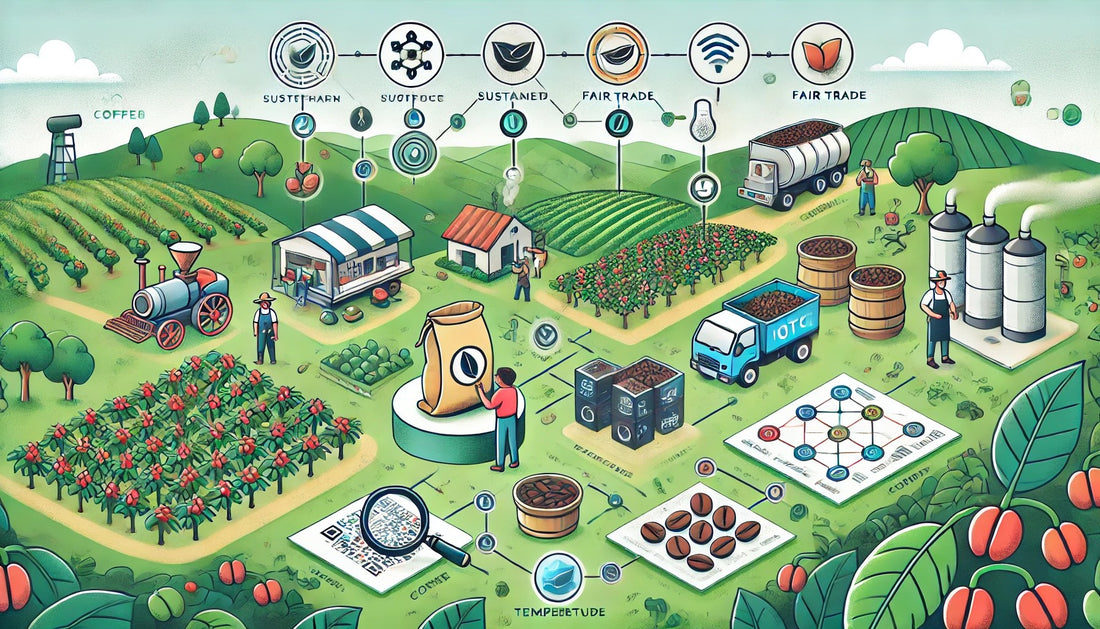The coffee industry is a complex web of growers, processors, distributors, and retailers, all working together to bring that perfect cup to your table. In recent years, blockchain technology has emerged as a revolutionary tool, enhancing transparency and traceability across the supply chain. But what exactly is blockchain, and why is it so vital for the coffee industry? If you have heard of bitcoin then you know a technology that is has been built on blockchain. In this article, we’ll explore the basics of blockchain technology, the need for traceability in the coffee supply chain, and how blockchain can address these needs.
At its core, blockchain is a decentralized digital ledger that records transactions across multiple computers. Each transaction, or “block,” is securely linked to the previous one, forming a “chain” of data. This structure ensures that once a transaction is recorded, it cannot be altered, providing a transparent and immutable record of all activities. Unlike traditional databases managed by a central authority, blockchain’s decentralized nature enhances security and trust.
The Need for Traceability in the Coffee Industry
The coffee supply chain is fraught with challenges, including fraud, unethical sourcing, and quality control issues. Consumers today are more conscious than ever about the origin of their products, demanding proof of ethical practices and sustainable sourcing. Traceability is no longer a luxury but a necessity. It ensures that coffee is sourced, processed, and distributed in ways that meet ethical and quality standards.
Some Scandals that have prompted increased traceability:
| Year | Scandal | Description | Impact |
|---|---|---|---|
| 2000s-Present | Fair Trade Fraud | Instances where coffee labeled as "Fair Trade" did not meet the required standards or where certification was fraudulently obtained. | Undermined consumer trust in Fair Trade labels, highlighting the need for robust verification systems. |
| 2010s-Present | Child Labor and Exploitation | Reports of child labor and exploitative working conditions in coffee farms, particularly in countries like Côte d'Ivoire and Ethiopia. | Prompted public outcry and demands for greater transparency to ensure ethical production practices. |
| 2000s-Present | Mislabeling and Adulteration | Cases where coffee was adulterated with other substances or where origin labels were falsified to sell lower-quality beans at higher prices. | Deceived consumers and harmed the reputation of genuine producers, underscoring the need for traceability. |
| 2010s-Present | Environmental Damage and Deforestation | Coffee production linked to deforestation and habitat destruction, especially in regions like the Amazon. | Highlighted the demand for transparent supply chains to verify sustainable farming practices and minimize environmental harm. |
| 2000s-Present | Unethical Trading Practices | Issues like price manipulation, exploitation of small farmers by large corporations, and unfair trading practices. | Led to calls for transparency in trading and pricing mechanisms to ensure fair compensation for farmers. |
As you can see these scandals span multiple years and have collectively driven the coffee industry to adopt more transparent and traceable practices to rebuild trust and ensure ethical and sustainable operations.
How Blockchain Enhances Traceability
Blockchain technology offers an innovative solution to the traceability problem by providing a secure and transparent system for recording transactions. Here’s how it works in the coffee industry:
- Immutable Record-Keeping: Each step in the coffee supply chain, from harvesting to processing to distribution, is recorded on the blockchain. These records are immutable, meaning they cannot be altered or deleted, ensuring the integrity of the data.
- Increased Transparency: All stakeholders in the supply chain, including farmers, processors, distributors, and retailers, have access to the same data. This transparency helps build trust among all parties and ensures that any discrepancies can be quickly identified and resolved.
- Real-Time Data Access: Blockchain provides real-time access to data, allowing stakeholders to track the journey of coffee beans at any point in time. This helps in maintaining quality control and addressing any issues promptly.
Benefits of Blockchain for Coffee Producers and Consumers
The adoption of blockchain in the coffee industry brings numerous benefits for both producers and consumers.
- Trust and Brand Loyalty: Consumers can scan QR codes on coffee packaging to access detailed information about the product’s journey, from the farm where the beans were grown to the processing methods used. This transparency builds trust and brand loyalty, as consumers can be confident about the quality and ethical sourcing of their coffee.
- Fraud Prevention and Quality Assurance: Blockchain’s immutable record-keeping reduces the risk of fraud and counterfeiting, ensuring that the coffee is genuine and of high quality. Detailed records of each stage of production and transportation help maintain quality standards.
- Ethical Sourcing and Fair Trade: By using blockchain, coffee companies can verify and prove that their beans are sourced ethically, ensuring fair wages and sustainable farming practices. This not only benefits the farmers but also appeals to the growing number of ethically conscious consumers.
Case Studies of Blockchain in the Coffee Industry
There have been some studies looking to prove the ROI on using this blockchain technology. From IBM to Starbucks. Truly interesting findings.
Now having said all this, Blockchain technology is transforming the coffee industry by providing an unprecedented level of transparency and traceability. This not only enhances consumer trust and brand loyalty but also ensures ethical sourcing and quality assurance throughout the supply chain. As the demand for traceability and transparency continues to grow, the adoption of blockchain in the coffee industry is likely to become even more widespread, paving the way for a more sustainable and ethical coffee market.

